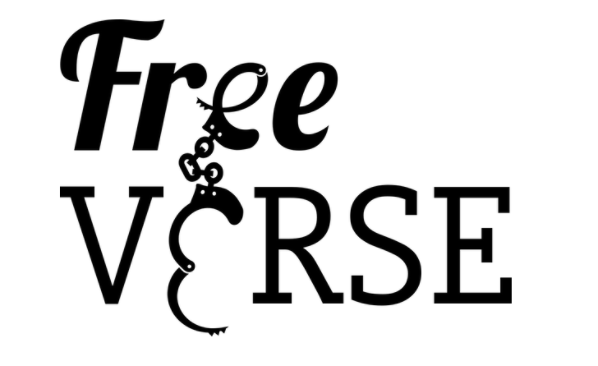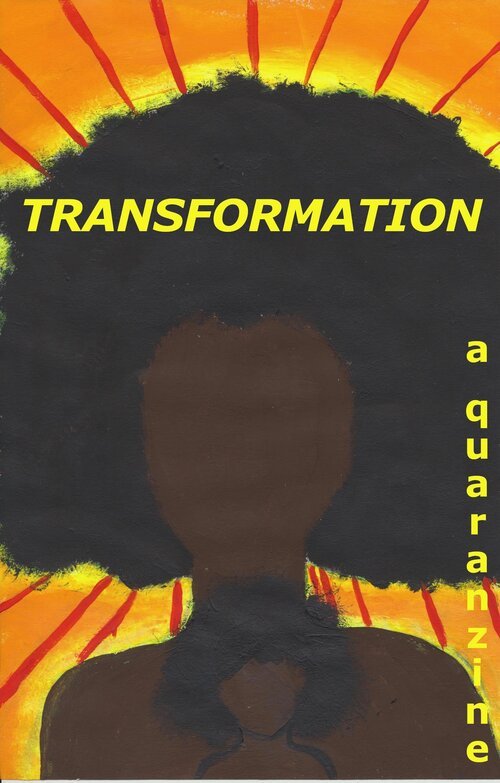I Am montana
Volume 3 & 4
Purchase Volume 4 online through Amazon, or in-person in Missoula at the Zootown Arts Community Center or Fact & Fiction. If you are unable to purchase a copy, you can find it at the Missoula Public Library.
About the Project
In 2017, the National Endowment for the Humanities funded a proposal by the Free Verse Writing Project and Young Poets, a poet-in-the-schools program of the Center for Creative Writing at Montana State University in Billings, for the I Am Montana project, a collaborative endeavor that offers creative writing workshops at five different learning facilities across Montana, along with yearly publication of an anthology that features student writing. Writers, teachers, and guest speakers go into these youth detention centers and learning facilities on a regular basis to teach literature and writing classes structured around the theme of Montanan identity. These workshops encourage students to excavate and analyze the beauty and hardship of their unique experiences growing up in Montana and to explore those experiences in writing.
The project recognizes that:
Incarcerated young people are often wrongly labeled and dismissed as “problem children,” “bad kids,” or “juvenile delinquents.” The I Am Montana Project seeks to give these young people the tools to reclaim their narratives and tell their own stories about who they are and where they come from, as well as to encourage them to realize their identities go beyond their addictions or the crimes they are accused of or convicted of having committed.
The healing power of art through creative expression and, using trauma-informed care practices, encourages the youth participating to express themselves freely in a safe, non-judgemental space.
While much of the Montana narrative of wide-open spaces, sprawling ranches, and the old west is given over to people already empowered to speak, we want to instead elevate the voices and stories of lesser-heard Montanan experiences into the state dialogue through publication in our yearly anthologies. We recognize the voices of the marginalized, including the socially, economically, and racially marginalized young people are disproportionately represented in Montana’s juvenile detention centers and in the Billings public school system, and we want to change that.
What was the mission?
The mission of the project was to encourage students across learning centers to explore their identities as Montanans and reflect on their understanding of the state and their experience within it through classes in literature and creative writing. Each year has seen the publication of an anthology titled “I Am Montana” featuring student work drawn from creative writing classes. This past year our classes have given students a much-needed opportunity to reflect on fear, grief and loss in a pandemic.
Over the past three years, Free Verse has sent teachers twice a week to teach literature and creative writing classes to youth in the juvenile detention centers in Missoula and twice a year a team of Free Verse teachers has gone to the Pine Hills Youth Correctional Facility, the only long-term correctional facility for male youths in Montana, to teach I Am Montana writing lessons to the youth there. For their part of the I Am Montana project, Young Poets runs an eight-week teaching program in the spring working with high school students from three Billings public high schools at the Billings Career Center. During this eight-week program, lead classroom teacher Wanda Morales and Project Lead Dave Caserio guide students through workshops dedicated to mining their unique experiences as Montanans in writing.
Guest Speakers
Each year, Young Poets brings guest speakers to present specific lessons on writing, poetry, and music and how it relates to Montanan identity. In the first year of the program, Free Verse and Young Poets brought Crow Agency Apsáalooke rapper and fancy dancer Supaman to the Billings Career Center workshop as a guest speaker to teach song-writing to the students, and in the second and third years, Montana Poet Laureates Mandy Smoker Broaddus and Melissa Kwasny visited the classroom as guest speakers and delivered highly successful poetry workshops.
Volume 1& 2
This second volume of student poems is a collaborative project between two Montana-based organizations: Free Verse Writing and Second Season. Free Verse teaches literature and creative writing to students in juvenile detention facilities across Montana, and Second Season serves Northern Cheyenne communities, helping young people set and achieve positive goals.
As former Executive Director of Free Verse Claire Compton says in the Foreword of the collection, “So much of Montana art and literature succumbs to familiar tropes, to pioneers and the rural West, to idyllic landscapes and the great outdoors. Although there may be remnants of truth in these tropes, they speak to a certain kind of story, a story written by those already empowered to speak, a story rooted in settler-colonialism. “I Am Montana” aims to bring another kind of voice into Montana’s literary legacy. Featuring work from students across our state, from high school classrooms to juvenile detention centers, this anthology aims to elevate young voices and voices from historically marginalized communities. The importance of this work echoes the shift we see happening across the country. Everywhere, people are recognizing that the voices we need to hear are not the ones we’ve amplified. Rather, they are the voices that have been silenced for generations.”
Commissary notes
A special collaborative issue between Free Verse and the literary journal of the University of Montana, CutBank, featuring the writing and artwork of Montana’s incarcerated youth.
Proceeds from the sale of Commissary Notes were used to provide copies to Free Verse students.
Foreword
In the Fall of 2018, we joined a group of students and faculty members from the University of Montana to begin a collaborative research project with States of Incarceration, a national archival project that maps the experience and effects of incarceration across the United States.
This project, which began under the guidance of Professor Katie Kane and in conjunction with the Humanities Action Lab, examined the history of Montana and its place in American westward expansion, as well as Montana’s relationship to the doctrine of Manifest Destiny. These are histories that underpin contemporary practices of incarceration in the United States, such as the detention of immigrants and the separation of families at the border. Specifically, we wondered how Montana’s history of segregation and incarceration—from Native reservations and boarding schools to juvenile detention centers and prisons—made possible the myth of the West that Manifest Destiny promised to early colonial settlers at the expense of Native people; an idea that is still at stake in the national imaginary.
Some members of our cohort examined the history of Montana’s Native American reservations—mapping the discrepancies between their vast ancestral lands and the territories to which they were relegated after colonial settlement. Others examined the relationship between boarding schools and juvenile detention facilities, mapping the militarization of both, and noting how each institution has dispropor- tionately targeted youth of color. Still others engaged with the popular Western ideologies of public land access, and wondered why this access is often only granted to specific classes or races.
As graduate students in the Creative Writing MFA program, we were drawn to the work done by Free Verse—a creative writing program that teaches and encourages artistic expression in juvenile detention centers in Montana. Free Verse provides an important creative outlet for incarcerated youth and allows them to recognize that their voices, their stories, and their feelings matter. For members of our community who exist within a system designed to hide them away, the development of their voices and the ability to tell their stories is an im- portant opportunity to be seen and counted. Additionally, for those who aren’t familiar with the lived reality of detention, reading the work of young incarcerated writers allows for a deeper understanding of the lives of those living inside an often brutalizing and dehumanizing system.
For this reason, we partnered with CutBank, a nationally renowned literary journal run by the graduate students of The University of Montana’s Creative Writing Program, in order to release a special issue featuring the writing of local incarcerated youth, as collected and inspired by Free Verse. All submissions appear in this issue anonymously, for the safety and privacy of the writers, without any editorial changes. These powerful stories and poems tell stories of hurt and healing, of power and pain. They grab the mic and then drop it. They demand to be seen, heard, and understood.
It is with great pride that we present this special edition of CutBank, and hope it manages to do justice to the incredible spirit, experience, and resilience of the incarcerated youth and young adults of our community. It is our hope that this publication be a window, not a wall—an opportunity for those on the outside to see and hear the stories of those within.
Sincerely,
Editors of Commissary Notes
Quaranzines
Issue 1: Reflection
A zine featuring the writing and artwork of students at the Missoula Juvenile Detention Center and Youth Homes MT. These pieces were all written during the COVID-19 pandemic and reflect on place, home, identity, and experiences of isolation.
Issue 2: Where the Place Comes Alive
The second issue of our QuaranZine series features student writing on the theme of the places they occupy, both physically and internally, as well as where their imaginations and hearts travel to.
Issue 3: Transformation
The third and final issue of our QuaranZine series features student writing on the themes of exploration, discovery, rupture, transformation, growth, and change.









